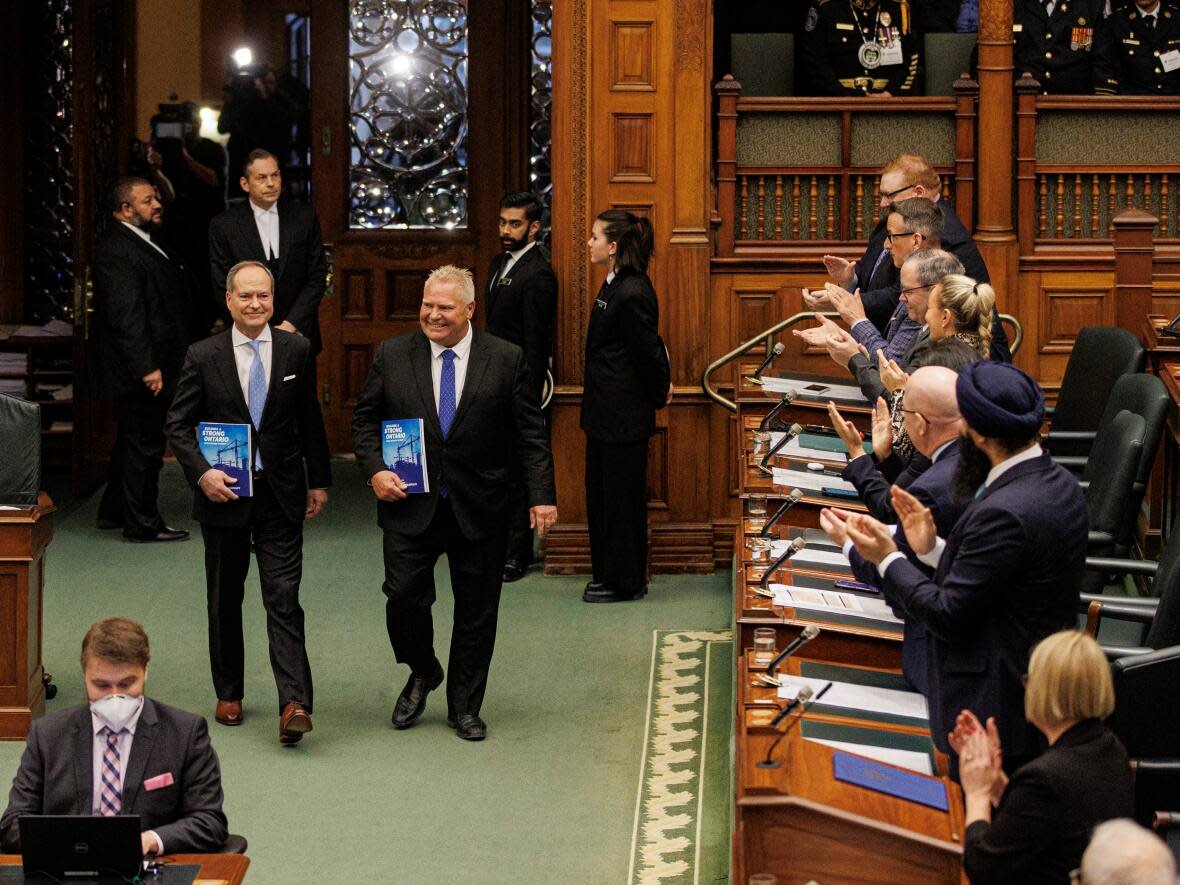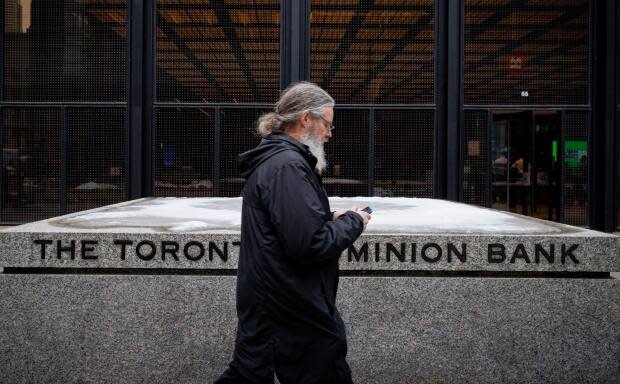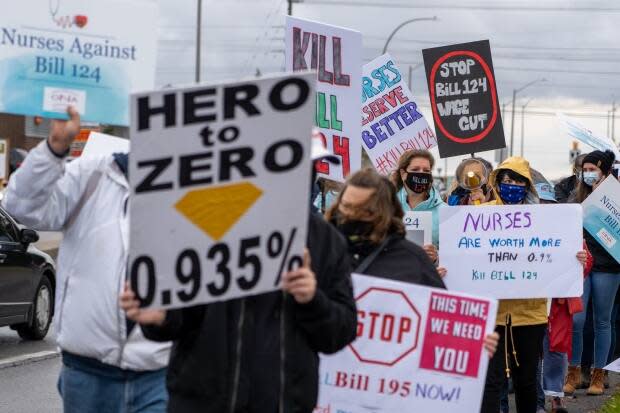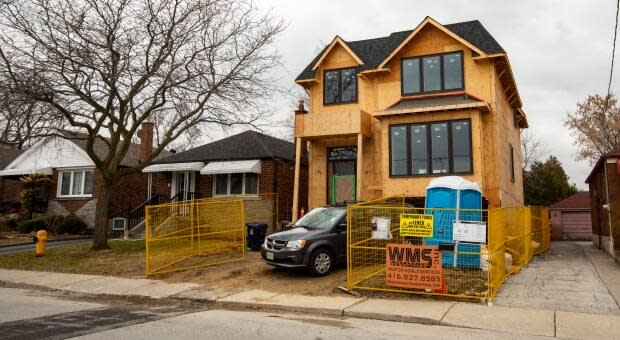What to expect from today's Ontario budget

- Oops!Something went wrong.Please try again later.
Ontario Premier Doug Ford keeps on describing the province's economy in glowing terms, but plenty of economists believe a far less rosy picture will be painted when Ford's finance minister tables his budget on Tuesday.
"The world is talking about Ontario right now," Ford said when asked about the state of the economy during a news conference in Richmond Hill last week.
"It's absolutely staggering what's happening here in Ontario," he said. "We're an economic powerhouse."
Ford pointed to the multi-billion-dollar plans by Stellantis and Volkswagen for electric vehicle battery plants in Ontario and predicted the province will see a record amount of corporate investment this year.
Contrast that with what bank economists are saying ahead of the budget:

These more measured assessments of Ontario's economic and fiscal situation are why many observers predict a relatively cautious budget from Finance Minister Peter Bethlenfalvy.
"Economies are weaker and you know, the costs of things are up for people, and we recognize that," said Bethlenfalvy, who will table his fourth budget since Ford appointed him finance minister in 2021.
While Ontario's economy looks like it's growing according to official figures, rapid population growth is actually propping up GDP, says Brian Lewis, the province's former chief economist.
Lewis, now a senior fellow and lecturer at the Munk School of Global Affairs and Public Policy, has calculated that Ontario's real GDP per capita has declined since mid-2022, and is currently lower than it was before the COVID-19 pandemic hit.
"The state of the economy has not been great over the last year and a half," Lewis said in an interview. "We've increased population way more than we're increasing the value of economic output."
The Ford government now has to cope with the added costs of providing services to that growing population, as well as the cost impacts of inflation and prolonged higher interest rates.

"What I'm hoping to see is that they at least keep the new spending under control, at least, don't dig the hole any deeper in this budget," Lewis said. "Fund the services that really need to be funded, but don't do anything more than you really need to do."
Mitch Heimpel, formerly a senior political staffer in the Ford government, now director of policy at public affairs firm Enterprise Canada, says the PCs' key political aim with the budget should be to show progress on campaign promises.
'Relentless mission to save people money'
"You got elected on getting stuff built. Demonstrate you're getting stuff built," said Heimpel in an interview.
Coming midway through the government's four-year term, analysts don't expect the budget to contain big political goodies designed to win over voters, but they expect Ford to pitch it as helping people cope with the cost of living.
"We're on a relentless mission to save people money," Ford said Monday. "We're always going to make sure we put money into people's pockets rather than the government's pockets."
Anti-poverty groups point out that the government has not put any more money into the pockets of Ontario Works recipients to help them cope with rising costs. The social assistance program provides a single parent with one child $642 a month for shelter and $360 for basic needs. Neither amount has changed since Ford took office in 2018.

CBC News has learned that one central feature of the budget will be auto insurance changes.
Multiple industry sources with knowledge of the government's plans say the budget will include reforms that give Ontario drivers a wider variety of options to lower their car insurance premiums.
Bethlenfalvy declined to offer details about the insurance changes during a news conference Monday. "We're always working to make things more convenient for auto drivers," he said.
Also on Monday, Ford announced another measure targeted at drivers that will be in the budget: a further extension of the ongoing 5.7 cents per litre cut to the provincial gas tax, until the end of the year.
For a driver who fills a 50-litre tank once a week, the gas tax cut means saving about $150 a year. For the provincial treasury, it means forgoing revenue of about $1.2 billion a year.
That's in addition to the roughly $1 billion of revenue the government has forgone yearly since 2022 by scrapping registration fees for passenger vehicles.

Meanwhile on the costs side of the ledger, the government continues to spend more than $6 billion a year to subsidize household hydro bills, and recently forked out $6 billion in retroactive pay for health care and other public sector workers after Ontario's top court ruled its Bill 124 cap on wage increases violates the Charter.
"This overturning of Bill 124 does present a significant shock to the fiscal situation in the province," said Karl Baldauf, senior vice president of the government relations firm McMillan Vantage and a former chief of staff to Bethlenfalvy.
But does that fiscal shock of higher public sector wages mean compensating in Tuesday's budget with spending cuts?
Baldauf doesn't see it that way. He says Ford and his team are talking a lot less often about finding efficiencies now than they did during their first term in office.
Political blowback from spending cuts
"There were too many challenges in the first mandate of this government where they tried to create efficiencies, scale back costs, and the political blowback was far greater than what the premier wanted to deal with," Baldauf said in an interview.
The government is also facing steady political pressure to improve the healthcare system – in a province where more than 2 million people don't have a family doctor – and to get the pace of home building ramped up.

Ford has pledged that 1.5 million new homes will be built in Ontario by 2031, but two years into the 10-year timeframe, housing starts remain well off pace.
The budget will include a new $1.8 billion fund to help municipalities build new infrastructure, Ford announced last week. Cities have said a lack of water and sewage capacity has hampered their ability to get housing built.
Bethlenfalvy signalled last fall that his previous target of eliminating the deficit in this year's budget will be pushed back to 2025-26.
"I've seen no conclusive polling evidence that voters care about balanced budget timelines, certainly not in the last 15 years," said Heimpel.
The government's latest forecast for the 2023-24 deficit is $4.5 billion.

